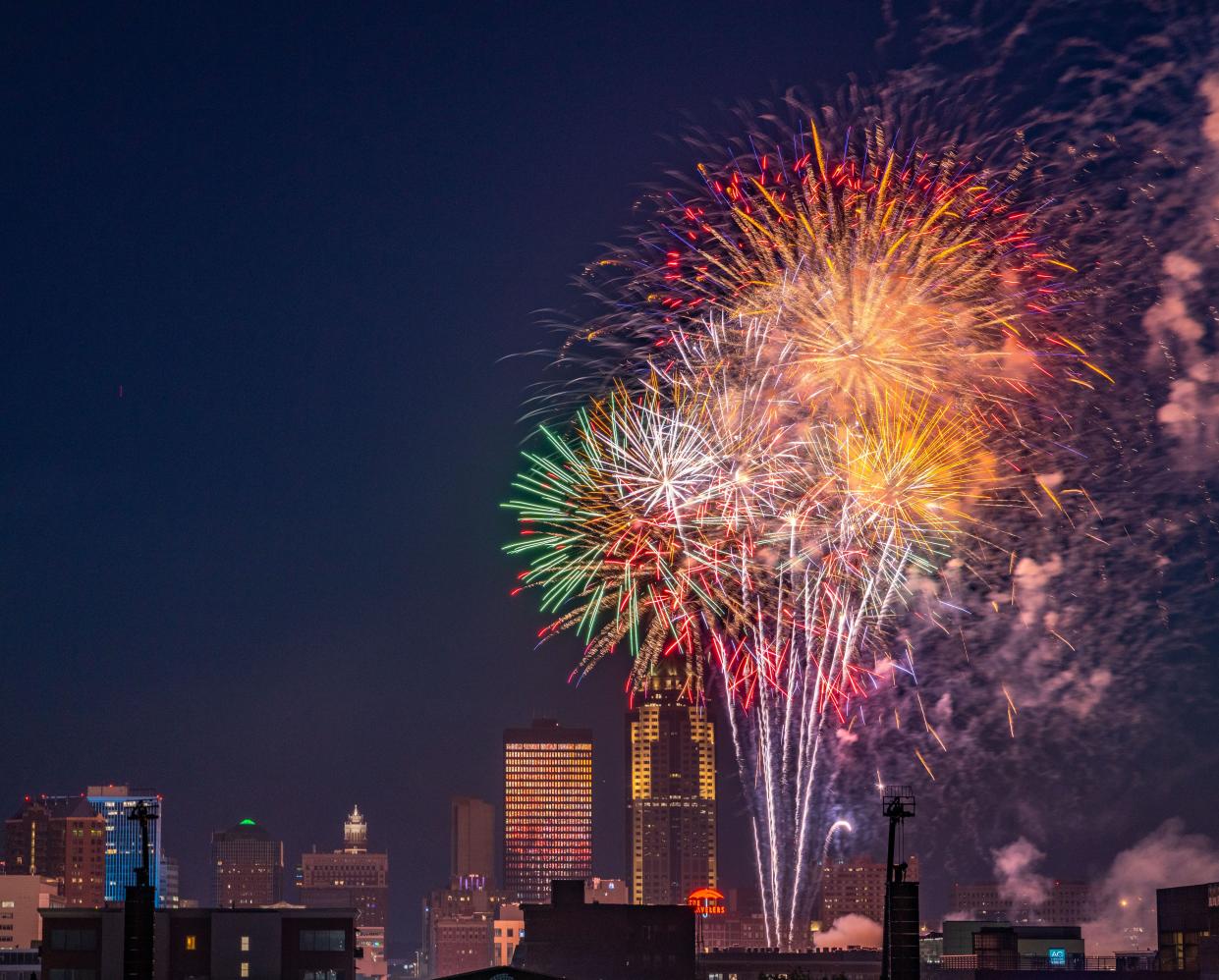US air quality map: Unhealthy air in Seattle, Portland, Southern California amid wildfires, fireworks

As Fourth of July festivities wind down across the country, the impact of the holiday may be evident in the sky in some of the 50 states.
Air quality alerts loomed in some states Wednesday as wildfires continue to burn in parts of the U.S. and Canada, which has caused poor air quality around the country this summer. But another factor might be July 4th fireworks, which could have a temporary impact on air quality in some areas, according to Cornell University Economics Associate Professor Nicholas Sanders, whose research focuses on environmental policy and quality.
As of Wednesday morning, Seattle ranked first in the world with the worst air quality according to IQ Air's live ranking of major world cities. Los Angeles came in 4th and Portland in 10th.
Fire risk: Fourth of July fireworks come as some parts of US are 'primed to burn'
Do fireworks impact air quality?
As the U.S. moves to recover from both Canadian wildfire smoke and now poor air quality caused by American wildfires, fireworks may have a temporary effect on the atmosphere, Sanders said.
Fireworks can contribute to spikes in air pollutants such as sulfur dioxide and particulate matter, making the air quality worse when it is already polluted.
"Particulate matter pollution is cumulative, meaning fireworks add on to already high background levels. This is especially true if there is little or no wind and the weather is dry, so pollution hangs around rather than dispersing," Sanders said.
More on fireworks: America's right to bear fireworks continues to make American Independence Day divisive
However, the firework pollution should not cause long lasting problems, he said.
"People might notice the extra pollution causes temporary eye, nose, and throat irritation. Those more sensitive to pollution spikes, such as infants or folks with respiratory or cardiovascular conditions, should take extra precautions like limiting the time around large fireworks displays or wearing a standard N95 mask," Sanders said.
As the U.S. continues to battle wildfire season and its consequences, Sanders said it's important to remember to take precautions for your health when going outdoors, especially if you are sensitive to poor air quality.
"For air quality AQI levels of 150 and above, everyone should do their best to stay indoors or wear an N95 mask if they’re spending time outside," Sanders said. "Having an indoor air purifier on hand is always a good idea, as is making sure to stay hydrated – our bodies use a lot of moisture to fight off pollution by making tears and mucus, and during the summer months we are often less hydrated anyway."
US air quality map today
Parts of the U.S. ranged from the moderate to the hazardous air quality on Wednesday, according to the AirNow Air Quality Index. Areas in Washington state near Tacoma saw the worst air quality Wednesday morning, while San Bernardino, California reported "very unhealthy" air quality.
Much of the Midwest reported some air quality problems as well, with parts of Illinois, Indiana, Ohio, and Wisconsin having air quality that ranged from moderate to unhealthy. The East Coast is also experiencing generally moderate air quality, with the worst being reported in northern New Jersey.
Seattle air quality map
Tacoma air quality map
New York City air quality map
Chicago air quality map
Portland air quality map
US, Canada smoke and wildfire map
Wildfires burned in parts of the West Coast as of Wednesday morning, according to The Wildland Fire Interagency Geospatial Service wildfire and smoke map. Parts of Arizona, Colorado, and New Mexico also reported wildfires, which all hurt the air quality in the U.S.
Additionally, smoke is still wafting across the U.S. from the Canadian wildfires, according to the National Oceanic and Atmospheric Association.
Kate Perez covers breaking and trending news for USA TODAY. You can reach her at kperez@gannett.com or on Twitter @katecperez_.
This article originally appeared on USA TODAY: Air quality index today: See Seattle, Portland, Los Angeles air levels

